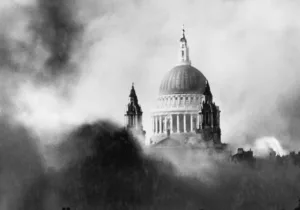Upon signing the executive order for the Emancipation Proclamation, Abraham Lincoln remarked, “I never, in my life, felt more certain that I was doing right, than I do in signing this paper… If my name ever goes into history it will be for this act, and my whole soul is in it.”
But Lincoln, unlike his copper-minted likeness, was not a one-sided figure. In the fervor to recognize Lincoln’s invaluable contributions to the abolition of slavery, his commitment to the rule of law and the constitutional limits on presidential power has been obscured. To fully understand Lincoln, one must consider not only his strong feelings about the evils of slavery but also the struggle he faced reconciling this conviction with his commitment to legal order and the limits of his office.
In his Lyceum Address(1838), a speech from early in his political career, Lincoln expressed his profound commitment to the importance of the rule of law. So deep was that commitment, he related, that even bad laws must be obeyed for the rule of law to be maintained. He remarked, “But I do mean to say, that, although bad laws, if they exist, should be repealed as soon as possible, still while they continue in force, for the sake of example, they should be religiously observed.” For Lincoln, the power of example was critical. When the lawless go unpunished, they become unrestrained, while good men grow weary of a “government which offers them no protection.” Without people’s attachment, the government is soon rendered ineffective.
During Lincoln’s time, the Constitution included the fugitive slave clause, which granted slave-owners legal right to their slaves as property. This caused a dilemma for Lincoln: How could he reconcile the fundamental law of our country with his belief that slavery was inherently wrong? In his letter to Albert Hodges (1864), he expressed his disgust with the institution of slavery, noting “if slavery is not wrong, nothing is wrong.” Yet he also lamented his inability to do anything about it given his position as executive, which prohibited him from exercising his “abstract judgement.”
However, considering some of Lincoln’s actions while in office, an inconsistency with the sentiments of his Lyceum Address becomes evident. On one hand, it appears Lincoln is committed to the rule of law above all else. But if Lincoln’s actions as president are examined, a different story emerges. He suspended writs of habeas corpus—a power not necessarily designated to the executive under the Constitution. And he signed the Emancipation Proclamation, which took property (as slaves were considered) from Southerners without “just compensation”—a power the Constitution did not grant to either Congress or the president.
Though an honest assessment must admit Lincoln is superficially inconsistent, this does not mean he is substantially incoherent. Lincoln is coherent within his own framework for four reasons. Namely, (1) an untouched constitution without an intact Union is useless; (2) he believed that the true intent of the Framers was to design a system that would eventually destroy slavery; (3) his appeals to transcendent fundamental rights indicate that he believed in the supremacy of natural law; and finally, (4) in effectuating change, Lincoln grounded his action in significant legal justification and—in the case of abolition—ensured it was enacted permanently through proper democratic legal channels.
Lincoln held that in his position as executive, he was fundamentally committed to the preservation of the Union, but that in order to achieve this supreme end, he would be forced to exercise power outside his constitutional authority. Regarding his enactment of the Emancipation Proclamation, in his letter to Albert Hodges, he noted:
I could not feel that, to the best of my ability, I had even tried to preserve the Constitution, if, to save slavery, or any minor matter, I should permit the wreck of government, country, and Constitution all together… I was, in my best judgment, driven to the alternative of either surrendering the Union, and with it, the Constitution, or of laying strong hand upon the colored element. I chose the latter.
There is also ample evidence that Lincoln thought the Founders intended the eventual abolition of slavery; thus, to truly uphold the principles of America’s founding would be to recognize the natural rights given to all men—that all men are created equal. In a speech given during his campaign against Stephen Douglas at Lewistown, Illinois, Lincoln highlighted the Founders’ belief that every man was “stamped with the Divine image,” and was never intended to “be trodden on, and degraded, and imbruted by [his] fellows.” Lincoln declared that “all of [the Founders] greatly deplored the evil [of slavery] and that they placed a provision in the Constitution which they supposed would gradually remove the disease by cutting off its source.” He went on to question that “if slavery had been a good thing, would the Fathers of the Republic have taken a step calculated to diminish its beneficent influences among themselves, and snatch the boon wholly from their posterity?”
Moreover, Lincoln indicated that the Founders “said to the whole world of men…‘that all men are created equal.’” He continued:
They erected a beacon to guide their children … and the countless myriads who should inhabit the earth in other ages … establish[ing] these great self-evident truths, that … in the distant future … their posterity might look up again to the Declaration of Independence and take courage to renew the battle which their fathers began—so that truth, and justice, and mercy, and all the humane and Christian virtues might not be extinguished from the land.
The coherence of Lincoln’s political philosophy and the justifiability of his actions as executive grow stronger when placed in the context of the Lockean conception of prerogative power. This contends greater lenience should be given to the executive in times of national emergency. As Herman Belz insightfully describes, “In time of war or other emergency the executive power comprises an American version of the Lockean prerogative, whereby the President is authorized to make and impose rules of action for the public safety and the common good of the nation as a whole.”
Of course, when Lincoln took enduring actions of questionable constitutional authority, he worked assiduously to provide legal justification. In 1861, after suspending the writs of habeas corpus, Lincoln delivered a message to Congress, noting:
Now it is insisted that Congress, and not the Executive, is vested with this power. But the Constitution itself, is silent as to which, or who, is to exercise the power; and as the provision was plainly made for a dangerous emergency, it cannot be believed the framers of the instrument intended, that, in every case, the danger should run its course, until Congress could be called together; the very assembling of which might be prevented…by the rebellion.
When the Emancipation Proclamation was signed, it was done under the War Powers Act as a matter of military exigency. But Lincoln was uncertain whether the Supreme Court would uphold the act, and worked tirelessly to secure the passage of the Thirteenth Amendment.
I think the enduring challenge posed by Lincoln’s actions in office is the precedent of expanded use of federal power. Even accepting a natural rights framework, there remains great subjectivity in what kinds of executive action may be justified under the broad category of prerogative. Furthermore, unlike Lincoln, recent presidents have not attempted to ensure substantive policy changes achieved through executive orders are also enacted through proper legislative channels. America’s presidents have signed executive orders for their every whim without so much as blinking an eye, and some have even wielded executive orders to hammer through policy Congress refused to pass. Lincoln, on the other hand, was very concerned about the constitutional limits on his power, and was reticent to take actions outside his authority, even when the matter involved a significant moral question.
Though I believe Lincoln’s actions in his time were justified, I doubt future presidents will exercise Lincoln’s discernment in determining what justification is sufficient to expand executive power. Only when faced with a national existential crisis did Lincoln abridge the rule of law, and he did so with the goal of preserving and completing the natural-rights vision of freedom put forth by the American Founders.







 Sponsor a student for Christianity & National Security 2024
Sponsor a student for Christianity & National Security 2024